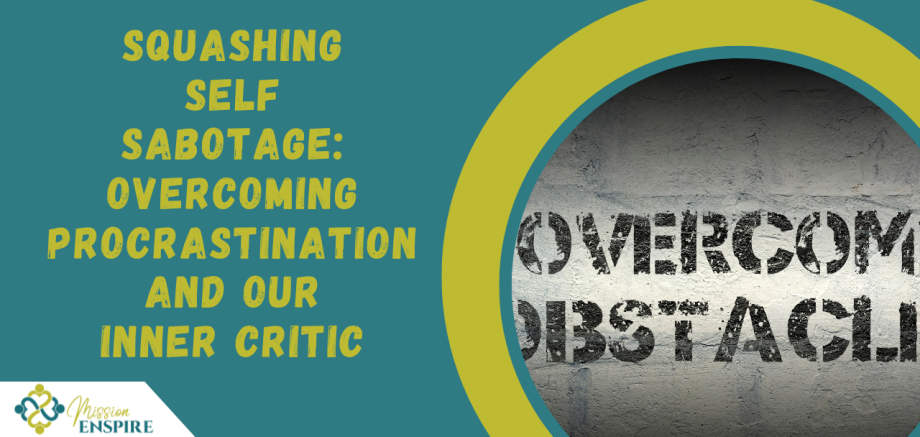Hello, and welcome back to this week’s installment of the blog! Last week I just jumped right into my topic without really explaining my plans for this month. I’m coining this month “Mindset March” because too often, we let limiting beliefs, self-doubt, and counterproductive thought patterns sabotage our ability to make positive changes and achieve our goals. That’s why I dedicated this month to exploring ways to overcome these self-imposed hurdles through personal stories, hard-won wisdom, and actionable mindset shifts.
As we have passed the halfway point of Mindset March, I hope you’ve been able to implement some strategies for cultivating a growth-oriented perspective – one that embraces challenges, learns from setbacks, quiets the inner critic, and propels you confidently toward your aspirations. If you’re just joining us now, don’t worry – there’s still time to adopt a mindset reset that can recharge you with unshakable drive for the rest of 2024.
This week, we’re focusing on two formidable inner foes that derail even the most driven individuals: procrastination and self-doubt. Procrastination is likely a familiar nemesis – that sly voice convincing you to postpone tasks under the guise of “I’ll get to it later.” Yet, as we know, “later” is often an elusive mirage where opportunities fade and stress compounds.
I vividly remember a time when procrastination completely derailed the launch of a new product for my business. I had spent months developing this offering, conducting market research, and planning out all the details. However, when it came time to actually build the sales page, film the promotional videos, and get everything ready, I found myself constantly putting it off for one reason or another. “I’ll just tweak the messaging one more time” or “I need to research a few more competitor products before finalizing my unique selling points.” These delays and excuses snowballed until the proposed launch date came and went with no product released. By the time I finally forced myself to take action, the momentum was lost, and I missed out on a prime sales window. Needless to say, I learned a hard lesson about the subtle impact procrastination can have.
Under the surface, procrastination stems from a web of fear, perfectionism, and misunderstanding our own energetic patterns. To unravel its grasp, we must first recognize these underlying drivers. Rarely is procrastination rooted in laziness alone. More often, it’s a coping mechanism masking anxieties about failure, criticism, feeling overwhelmed, or not living up to our full potential.
Powerful tactics for outmaneuvering procrastination include breaking formidable tasks into bite-sized steps and establishing clear deadlines. Massive projects can subconsciously trigger avoidance by appearing insurmountable. However, deconstructing that ambition into manageable micro-goals provides a series of motivating wins. Firm deadlines, meanwhile, create a productive urgency and prioritize what demands our focus.
For me, a huge procrastination trigger is being overwhelmed from seemingly massive tasks or initiatives. To combat this, I rely heavily on breaking down projects into discrete action steps and developing detailed project plans. By deconstructing any undertaking into a sequence of micro-tasks, the cognitive load feels much more manageable. I can fully focus on checking off one step at a time rather than becoming paralyzed by the enormity of the entire scope. Ticking off those small completion milestones provides a motivating trajectory as well.
As we call out procrastination’s undermining whispers, our growth journey inevitably brings us face-to-face with self-doubt. Whether navigating a career leap, creative venture, or simply pushing into new terrain, that incessant inner critic can leave us questioning our competence and worth.
There was a period early in my management career where I really struggled with self-doubt about being a capable leader. Anytime we hit obstacles or my team experienced failures, I was beset by profound feelings of being an inept, unqualified impostor who was putting on a shoddy performance in my role. This caused me to become overly deferential and hesitant about making decisions for fear of the consequences revealing my perceived shortcomings. The self-doubt made me micromanage tasks and avoid taking calculated risks that could advance our growth. Stuck in this mindset, I realized I was the one setting limitations on our team’s progress and impact. Re-framing my perspective on failures as learning opportunities was crucial for pulling myself out of that self-doubt spiral. I had to develop more self-awareness about when those insecure thoughts started creeping in so I could separate them from reality. With vulnerability and open conversations, my team found ways to productively push through setbacks rather than having me withdraw. It was a transformative experience in truly internalizing that self-doubt rarely represents truth – progress requires normalizing perceived missteps while keeping accountability for constant improvement.
Self-doubt often takes the form of a harsh inner voice warning about potential failure or embarrassment – that perpetual fear of being an “imposter” who doesn’t truly deserve their achievements. These sentiments frequently trace back to attributing success to luck rather than hard-earned skills honed over years of dedication. For many, self-doubt becomes a reflexive retreat into shame or harsh self-judgment anytime we approach the untested frontiers of growth.
However, these instinctive patterns of self-criticism fail to account for the immense effort, creativity and personal evolution required to reach our current levels of wisdom and accomplishment. One powerful practice for reframing self-doubt is making a detailed inventory of achievements, lessons learned, and capabilities cultivated along your journey so far. Periodically updating and reviewing this anthology serves as an antidote to our memory’s tendency to minimize progress.
Building a network of supportive peers, mentors and coaches can further reframe self-doubt as natural growing pains rather than signs of unworthiness. These perspectives from those further along remind us that bouts of insecurity arise for even the most confident high-achievers.
A big mindset shift for me has been consciously separating my self-worth and value as a person from any individual achievement or failure in my work/career. Any time my inner critic tries to latch onto a setback or shortcoming as evidence of my unworthiness, I have to pause and remember – my intrinsic worth is not conditional on external results. Yes, I hold myself to reasonably high standards in my profession, but I am so much more than just my latest win or loss. Practicing this perspective helps me extend myself compassion, understanding that in any endeavor, some failures or missteps are inevitable on the path of growth. Judging my entire self based on those is irrational and unfair. My self-worth persists regardless.
This week, choose one procrastination-fighting technique and one self-belief-bolstering ritual to incorporate daily. Notice how prioritizing consistent action and nurturing self-trust impact your productivity, outlook and willingness to embrace new challenges. Remember, overcoming these self-sabotaging patterns is an ever-evolving practice. However, each step you take to silence your inner critic and boldly show up unlocks new realms of fulfillment and impact.
Whether striving to launch a business, amplify your creativity or ascend within your professional field, procrastination and self-doubt are universal stumbling blocks. Yet rather than allowing these forces to obstruct your potential, you can transform them into catalysts for developing resilience, trust in your capabilities, and a voracious commitment to iterating your way toward growth. Stay dedicated to consistent effort and nurturing self-assurance – that’s how the transformative magic of this life path unfolds.

